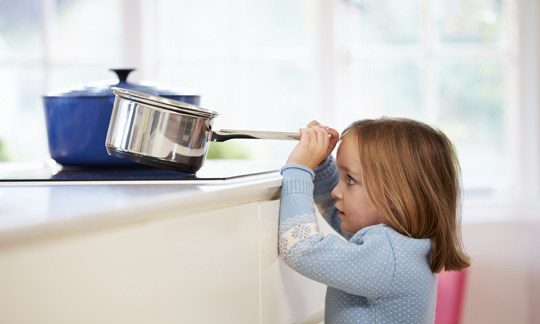National Burns Awareness Week 2015
 Burns are devastating injuries that leave both children and adults with both physical and mental scars.
Burns are devastating injuries that leave both children and adults with both physical and mental scars.
As part of National Burns Awareness Week from 6 – 12 May, Red Cross War Memorial Children’s Hospital is encouraging you to be prepared for an emergency as most burns occur in and around the home during the winter months, when households use more candles, paraffin stoves and open fires, placing children at even greater risk.
Potential burn hazards in and around your home include:
- unsupervised stoves, ovens and microwaves, electrical appliances and grease spills,
- children playing near stoves and ovens (move them to a high chair in the kitchen within reach or sight before you start cooking),
- a lack of maintenance (ensure that chimneys, fireplaces, and wood or coal stoves are cleaned often),
- faulty electrical appliances such as ovens, stoves, heaters, kettles, toasters and irons,
- overloaded circuits in direct contact with power lines or other live wires,
- loose-hanging kettle cords,
- hot containers and fluids,
- fire gels poured directly from the container onto flames (burning fire gel sticks to skin and is difficult to extinguish, causing prolonged burning with severe scarring),
- illegal and make-shift electrical wires,
- lit cigarettes or matches,
- burning candles, and
- certain chemicals like hair colourants, straighteners and relaxers.
 Do's and don'ts if your child gets burned:
Do's and don'ts if your child gets burned:
- cool the burn under cold tap water for 20 minutes,
- make sure the child is kept warm and go to your nearest doctor, hospital or clinic as soon as possible,
- do not apply ice, egg, toothpaste, butter or anything else to the burn as this could make it worse, and
- simply cover the wound with clingwrap or a clean sheet and seek medical assistance immediately.
Burn injuries not only affect the injured person, but also the families who love and support them. That is why we urge parents and caregivers to be aware of the dangers, and to take steps to keep their families safe.
More useful information:
- Paediatric Burns Unit (Red Cross War Memorial Children’s Hospital)
- Burn Care Trust
- National Burns Association of South Africa (NBASA)
- Safe Kids Worldwide


